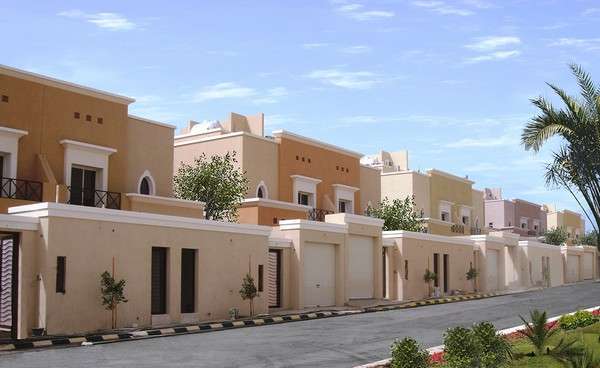Latest News
- Globally, Kuwait Is Among The Top Consumers Of Incense And Oud O...
- Decrease Seen In Foreign Investment
- Kuwait Customs Seized 2 Containers Laden With Tobacco At Shuwaik...
- Unpaid Salaries, Accountant Beaten Up By Workers
- The Sahel App Was Not Hacked, A Spokesman Claims
- Four Expats Arrested For Stealing Copper Cables Worth 60,000 Din...
- Indian National Died In Abdalli Car Accident
- Work Permits And Foreign Worker Transfers Are Amended By PAM
- Kuwait Weekend Temperatures Will Hit 39 Degrees
- In Just Two Years, The Civil Service Bureau Sees A Surge Of 10,0...
- Kuwait's Commitment To Combat Human Trafficking
- Kuwait's Announces Modernizing Renewable Energy Update
Property Prices In Investment And Residential Units Are Likely To Witness A Decline In 2016

Real estate sector to witness decline in prices during 2016 following the government’s recent allotment of housing plots in newly developed areas of Kuwait. Other factors that could contribute to lower property prices in the coming year include the continuing decline in international oil prices and the recent hike in interest rates on the Kuwaiti dinar. However, experts believe, prices for commercial properties will remain firm through 2016 based on the steady demand for new retail space.
Except for a brief upswing in June, the real estate sector in general is believed to be going through a correction. A brief look into the Kuwaiti market’s three main real estate sectors — investment, residential and commercial — show that residential property prices, which recorded a 20 percent decline early this year compared to the same period last year, continued its downward slope in July.
According to a National Bank of Kuwait report, sales across the three sectors totaled KD247 million, down 23 percent for the first seven months of the year compared to the same period last year. Sales in the residential sector fell below the KD100 million mark for the first time in nearly three years in July, with a total sales of KD98 million, down 28 percent y/y. Vacant plots constituted 41 percent of all transactions in this sector.
Sales in investment sector also declined in July with total sales reaching KD120 million, a 9 percent decline y/y. Apartments accounted for 53 percent of all transactions while whole buildings constituted 44 percent. Among the three real-estate sectors, only the commercial segment showed y/y gains with total sales reaching KD31 million in July, significantly higher than the same period a year earlier. Despite this gain in July, sales in the commercial sector remains down 19 percent for the first seven months of the year compared to the same period last year.
Distribution of plots by the Public Authority for Housing Welfare in new residential areas, such as Northwest Sulaibikhat, West Abdullah Al-Mubarak and South Al-Mutlaa, was the main factor impacting prices in the real estate sector. The government’s distribution of housing plots showed its seriousness to tackling this long-standing issue and its intention to solve this problem as quickly as possible.
The plot distributions will primarily be reflected on the rented housing sector (investment houses), which flourished in recent years. Kuwaiti families that occupied these houses are likely to move to the new houses distributed by the Housing Authority, thereby easing pressure on the private housing sector. Real estate analysts believe that this would lead to prices dropping in the next three years, mainly in areas such as Al-Qurain, Al-Messila, Al-Finatees and Abu Ftaira. The forecast decline in housing properties is then likely to reciprocate on the investment sector (apartment buildings), where prices are expected to drop and cost of buildings put up for sale are also likely to witness a decline.
Meanwhile, prices for commercial sector buildings such as shopping malls and stores are projected to remain steady in the wake of recent increase in rents that pushed the price per square meter from KD5.5 to KD8.5. However, this sector is often impacted by consumer sentiments that change with economic conditions. In case oil prices drop further and fears of yet another bout of global economic crises arises, the commercial sector will take the brunt of effects and this could affect prices in this sector.
The Secretary General of the Real-Estate Union Qais Al-Ghanim foresees further downward movement in the sector during second half of 2016 because the market will by then absorb the forecast economic developments at the local and international levels. "This is a very negative eventuality that will negatively affect various property sectors," he said.
Recent decision by the Central Bank of Kuwait to raise the interest rate has also led to slashing in prices of housing units, namely the leased ones. Moreover, with the government planning to levy fees on some utilities and services, a slowdown in some of the sectors, namely construction and contracting is likely. This could lead to an increase in prices of finished products thus further dampening demand on new property units and plots.
The decline in real estate prices is however seen as an opportunity for investors who had been put off by soaring prices; they could benefit significantly from the forecasts, especially in the apartment buildings’ sector.
SOURCE : THETIMES
Trending News
-
 Eid Al Fitr 2024: Crescent Moon Not Sighted In Sau...
08 April 2024
Eid Al Fitr 2024: Crescent Moon Not Sighted In Sau...
08 April 2024 -
 Kuwait Implements Home Biometrics Services Ahead O...
14 April 2024
Kuwait Implements Home Biometrics Services Ahead O...
14 April 2024 -
 When Will Eid Al Fitr 2024 Take Place In Qatar, Ba...
08 April 2024
When Will Eid Al Fitr 2024 Take Place In Qatar, Ba...
08 April 2024 -
 On Sunday, The Meteorological Department Warns Of...
07 April 2024
On Sunday, The Meteorological Department Warns Of...
07 April 2024 -
 Kuwait Airways Provides Update On Flight Schedule...
14 April 2024
Kuwait Airways Provides Update On Flight Schedule...
14 April 2024 -
 Gathering For Eid Al-Fitr Prayers: Kuwaiti Citizen...
10 April 2024
Gathering For Eid Al-Fitr Prayers: Kuwaiti Citizen...
10 April 2024 -
 Winners Of Kuwait National Assembly 2024 Elections
06 April 2024
Winners Of Kuwait National Assembly 2024 Elections
06 April 2024 -
 Kuwait Airways Introduces Convenient Home Luggage...
15 April 2024
Kuwait Airways Introduces Convenient Home Luggage...
15 April 2024 -
 Bay Zero Water Park Kuwait: Summer Season Opens Ei...
11 April 2024
Bay Zero Water Park Kuwait: Summer Season Opens Ei...
11 April 2024 -
 An Egyptian Expat Dies At Kuwait's Airport
11 April 2024
An Egyptian Expat Dies At Kuwait's Airport
11 April 2024












Comments Post Comment